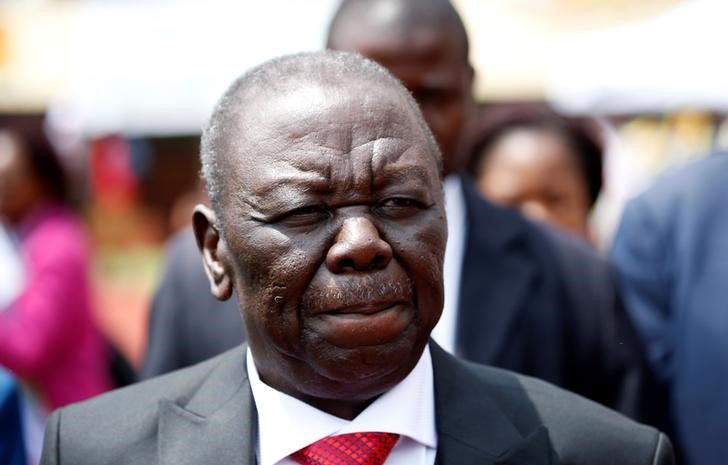
FILE PHOTO – Workers of planemaker Airbus stand in front of the main entrance during a 24-hour strike of German Metal Workers Union IG Metall in Hamburg-Finkenwerder, Germany, February 2, 2018. REUTERS/Fabian Bimmer
February 6, 2018
(This version of the Feb 5th story corrects 12th paragraph to show the 100 euros one-off payment is for the first quarter, not monthly from January to March)
By Ilona Wissenbach
STUTTGART, Germany (Reuters) – Industrial workers and employers in southwestern Germany struck a hard-fought deal on pay and working hours on Monday night, setting a benchmark for millions of workers across Europe’s largest economy.
The agreement between labor union IG Metall and the Suedwestmetall employers’ federation foresees a 4.3 percent raise from April and other payments spread over 27 months, IG Metall negotiator Roman Zitzelsberger told reporters.
“Workers will have more money in their pockets in real terms; they will get a fair share of company profits; and that will boost consumption,” Zitzelsberger said after talks in Stuttgart that lasted 13 hours.
IG Metall had demanded a 6 percent annual raise for 3.9 million workers against a backdrop of a strong economic recovery and the lowest unemployment since German unification in 1990.
That has led investors to worry that a big hike could add to inflation pressures just as world stock and bond markets are selling off on fears that jobs bonanza in the United States may force early interest rate hikes there.
The “pilot” deal covers half a million employees employed in southwestern Germany, home to industrial powerhouses like car maker Daimler AG <DAIGn.DE>. Both sides said they will recommend its adoption across the country.
HARD TO BEAR
Suedwestmetall negotiator Stefan Wolf said the size of the award had been tough for employers to accept. Yet he welcomed the deal’s long duration, which he said would enable companies to plan ahead.
“The size of the award will be hard to bear for some businesses,” Wolf told reporters, sitting alongside Zitzelsberger. “The big number at the outset hurts us, but IG Metall wanted to see it.”
IG Metall had staged a series of 24-hour strikes and threatened to ballot its members for extended industrial action if employers failed to offer concessions following the walkouts at Monday’s sixth round of pay talks.
Last week’s strikes cost carmakers, automotive suppliers and engineering firms almost 200 million euros ($249 million) in lost revenues, affecting big firms like Daimler, BMW <BMWG.DE> and Airbus <AIRG.DE> and dozens of smaller suppliers.
As is often the case in Germany’s highly ritualized system of wage bargaining, the details of the deal were highly complex. At the end of the day, said Suedwestmetall negotiator Wolf, the cost to employers would work out at below 4 percent per year.
In addition to April’s 4.3 percent pay rise, employees will receive a one-off payment of 100 euros ($124) extra for the first quarter.
From 2019, workers will get an additional fixed annual sum of 400 euros as well as a payment equivalent to 27.5 percent of their monthly pay.
Meeting a key IG Metall demand, workers will also be able to reduce their working week to 28 hours from the standard 35 to care for children, or for sick or elderly relatives, for a period of up to two years.
In return, employers will be able to take on more staff willing to work for up to 40 hours — creating the flexibility they need to ramp up production during periods of high demand.
($1 = 0.8031 euros)
(Reporting by Ilona Wissenbach, editing by Louise Heavens; Writing by Douglas Busvine; Editing by Susan Fenton and Sandra Maler)

